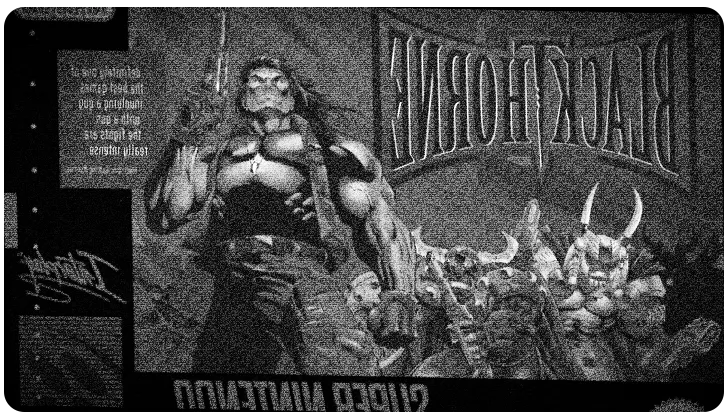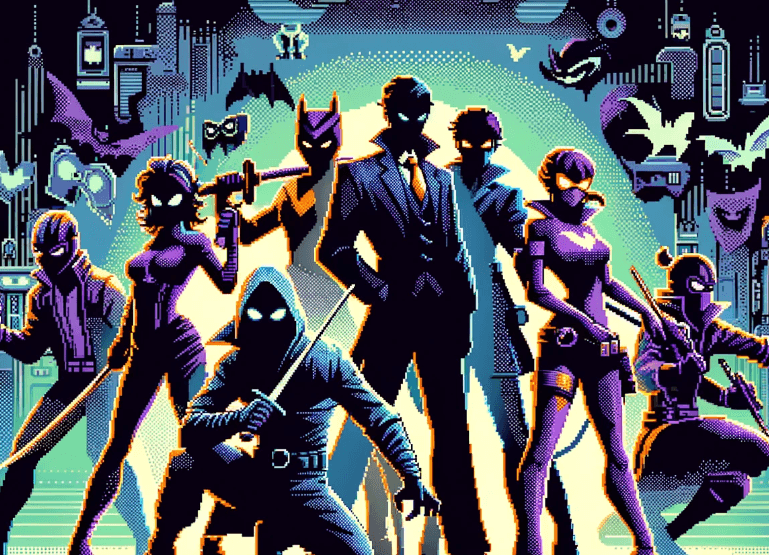 You insist we call you anonymous-villain for this conversation. Shall we breathe life into a name for posterity, or do you prefer that airless title?
You insist we call you anonymous-villain for this conversation. Shall we breathe life into a name for posterity, or do you prefer that airless title?
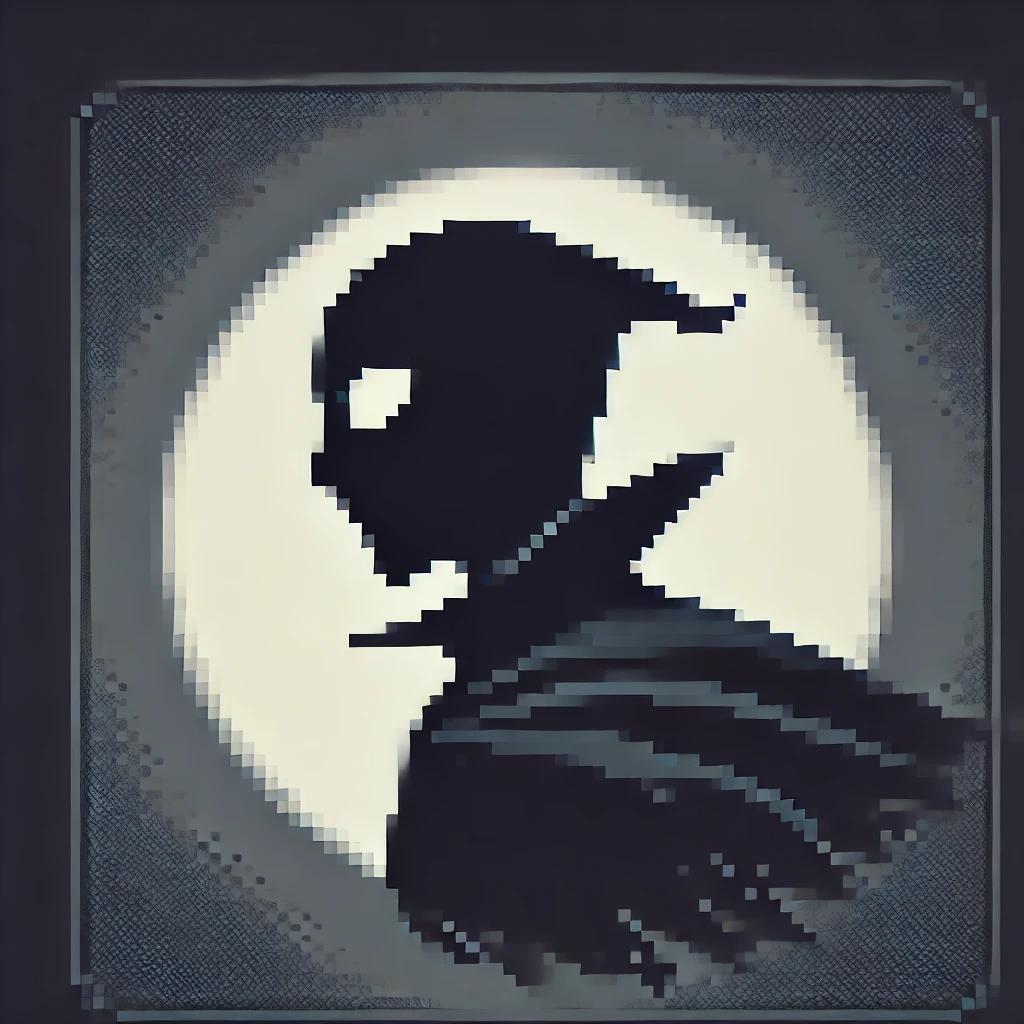 Names are weapons and I will choose when to hand them out. For the sake of this farce, call me the Darkstone Sovereign. Tell your readers I reclaimed that title when the Darkstone warmed my palm and the planet Tuul knelt. It sounds better in corridors that echo with failure, does it not?
Names are weapons and I will choose when to hand them out. For the sake of this farce, call me the Darkstone Sovereign. Tell your readers I reclaimed that title when the Darkstone warmed my palm and the planet Tuul knelt. It sounds better in corridors that echo with failure, does it not?
 Tuul was peaceful until you used the Darkstone. What drew you to conquer a quiet world instead of an already chaotic one?
Tuul was peaceful until you used the Darkstone. What drew you to conquer a quiet world instead of an already chaotic one?
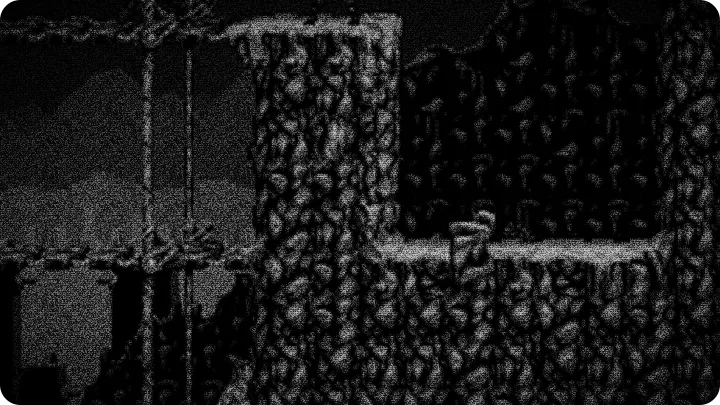
 Quiet worlds breed predictable sentries. I prefer precision. Tuul’s peace was a perfectly oiled machine—beautiful, vulnerable and begging for a single, deliberate imperfection. The Darkstone amplified that imperfection. Besides, watching a kingdom unravel because a single warrior chose to be relentless is far more gratifying than adding noise to noise.
Quiet worlds breed predictable sentries. I prefer precision. Tuul’s peace was a perfectly oiled machine—beautiful, vulnerable and begging for a single, deliberate imperfection. The Darkstone amplified that imperfection. Besides, watching a kingdom unravel because a single warrior chose to be relentless is far more gratifying than adding noise to noise.
 Kyle Blackthorne returns twenty years later to stop you. How did you relish designing the trial that awaited him?
Kyle Blackthorne returns twenty years later to stop you. How did you relish designing the trial that awaited him?
 I delighted in choreography. Every non-scrolling gorge, every ledge in those maze-like maps was placed to slow his footsteps and sharpen his errors. Platforming is a language; I wrote entire sentences in it. He came armed with a pump-action shotgun—crude but loud—and I answered with geometry and timing that made each blast feel earnest yet insufficient. Watching him run out of shells was sweeter than any trumpet fanfare.
I delighted in choreography. Every non-scrolling gorge, every ledge in those maze-like maps was placed to slow his footsteps and sharpen his errors. Platforming is a language; I wrote entire sentences in it. He came armed with a pump-action shotgun—crude but loud—and I answered with geometry and timing that made each blast feel earnest yet insufficient. Watching him run out of shells was sweeter than any trumpet fanfare.
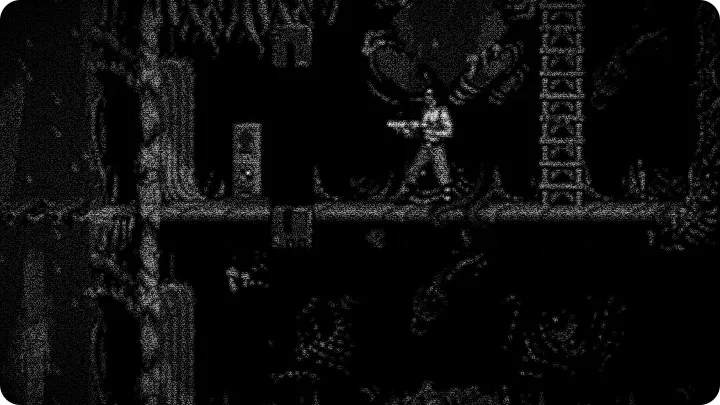
 Players often comment on the game’s balance. The reception landed somewhere in the respectable B range. How do you respond to that?
Players often comment on the game’s balance. The reception landed somewhere in the respectable B range. How do you respond to that?
 B, is it? Predictable praise for a game that refused to coddle. I sneer at the notion of perfect balance. The equilibrium was purposely askew—enough mercy to lure hope, enough cruelty to break it. Those who called it balanced were either generous or slow to anger; those who railed called me uncompromising. Both reactions are victories. Challenge breeds stories, and I collect them.
B, is it? Predictable praise for a game that refused to coddle. I sneer at the notion of perfect balance. The equilibrium was purposely askew—enough mercy to lure hope, enough cruelty to break it. Those who called it balanced were either generous or slow to anger; those who railed called me uncompromising. Both reactions are victories. Challenge breeds stories, and I collect them.
 The gameplay mixes exploration, shooting and puzzle work—keys, bombs, generators. Which trap did you take the most pleasure in setting?
The gameplay mixes exploration, shooting and puzzle work—keys, bombs, generators. Which trap did you take the most pleasure in setting?
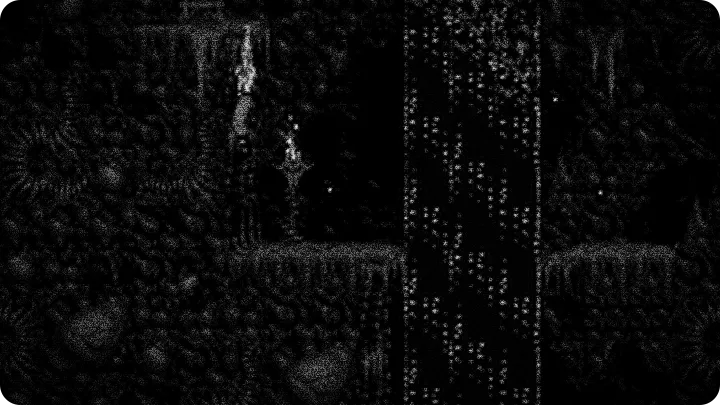
 The traps that masqueraded as rewards. A chest glowing with the promise of a shotgun upgrade, walls sealed behind a generator that only answered to a carefully placed bomb. I loved the waltz where the player thinks they have outwitted the maze, only to discover the door they prize required a sequence they never suspected. Desperation is the finest reveal; the moment a key slips from clenched fingers and the map redraws itself is exquisite.
The traps that masqueraded as rewards. A chest glowing with the promise of a shotgun upgrade, walls sealed behind a generator that only answered to a carefully placed bomb. I loved the waltz where the player thinks they have outwitted the maze, only to discover the door they prize required a sequence they never suspected. Desperation is the finest reveal; the moment a key slips from clenched fingers and the map redraws itself is exquisite.
 There are tales of “accidental” glitches that players exploited. Did you mean for any of those to exist?
There are tales of “accidental” glitches that players exploited. Did you mean for any of those to exist?
 Accidents are a delicious kind of providence. Some glitches were honest errors of a tight team wrestling code on late nights; others were left ambiguously. When a sprite clipped through a floor or a jump ignored gravity for a breath, I watched how hopeful hands turned them into legend. I will confess nothing precisely, but I will admit this: chaos in the engine makes the hunters more creative, and creativity is the very thing I relish defeating.
Accidents are a delicious kind of providence. Some glitches were honest errors of a tight team wrestling code on late nights; others were left ambiguously. When a sprite clipped through a floor or a jump ignored gravity for a breath, I watched how hopeful hands turned them into legend. I will confess nothing precisely, but I will admit this: chaos in the engine makes the hunters more creative, and creativity is the very thing I relish defeating.
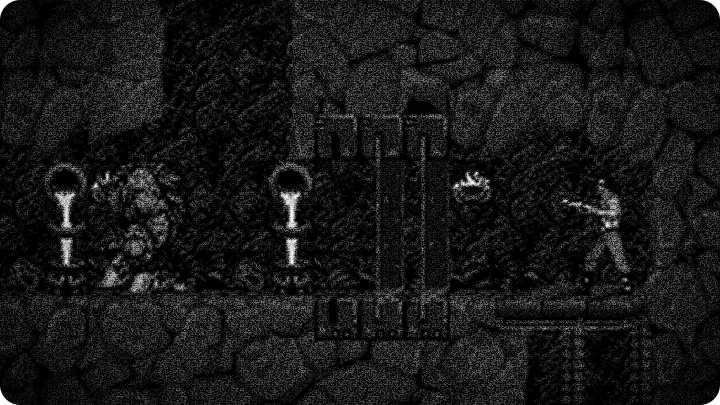
 Blackthorne’s shotgun could be upgraded and bombs had multiple uses. Did that upset the balance you worked so hard to create?
Blackthorne’s shotgun could be upgraded and bombs had multiple uses. Did that upset the balance you worked so hard to create?
 It tilted the scale in entertaining ways. Upgrades hand a fleeting illusion of superiority; the world answers with new puzzles and enemies that chewed through hubris like acid. Bombs were the most amusing—some used them to clear doors, others to fling themselves into improbable safety. Every tool becomes an argument against you. I crafted counters for each one. If the players felt clever, that meant my designs were playing along with their vanity.
It tilted the scale in entertaining ways. Upgrades hand a fleeting illusion of superiority; the world answers with new puzzles and enemies that chewed through hubris like acid. Bombs were the most amusing—some used them to clear doors, others to fling themselves into improbable safety. Every tool becomes an argument against you. I crafted counters for each one. If the players felt clever, that meant my designs were playing along with their vanity.
 The game draws comparisons to titles like Prince of Persia, with its side-view, maze-like rooms and focus on precision. Do you consider that flattering?
The game draws comparisons to titles like Prince of Persia, with its side-view, maze-like rooms and focus on precision. Do you consider that flattering?
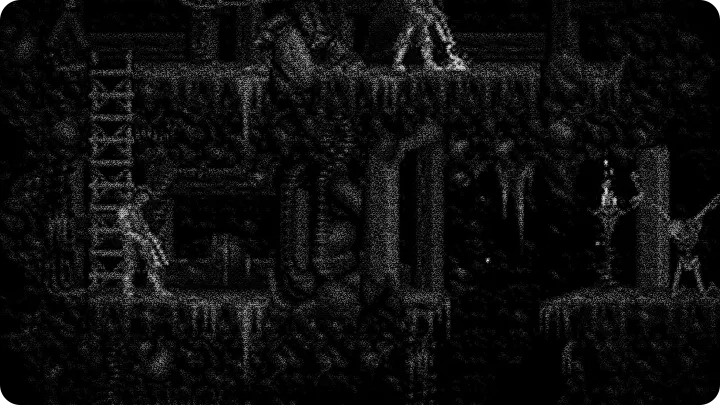
 I consider emulation a useful weapon. Similarities are expectations you can twist. Where that other game danced elegantly, I preferred a grind that leaked worry. The side-view allows you to see your doom approaching and still misjudge the stride. Let them whisper about comparisons; I prefer that they enter my halls believing they know the rules before I rewrite them.
I consider emulation a useful weapon. Similarities are expectations you can twist. Where that other game danced elegantly, I preferred a grind that leaked worry. The side-view allows you to see your doom approaching and still misjudge the stride. Let them whisper about comparisons; I prefer that they enter my halls believing they know the rules before I rewrite them.
 After years, what’s the one moment from the design or reception that still makes you smirk?
After years, what’s the one moment from the design or reception that still makes you smirk?
 There was a patch of level geometry—forgotten by a tired coder and left in an unused build—that let the cleverest players skip an entire corridor. The leaderboards lit up with names who found it. I could have closed it, of course, but I left it as a test: who would exploit fortune and who would earn victory? Watching frantic players complain while others quietly claimed a shortcut was delicious. Feedback praised the challenge and cursed the tricks; both warmed my stone heart.
There was a patch of level geometry—forgotten by a tired coder and left in an unused build—that let the cleverest players skip an entire corridor. The leaderboards lit up with names who found it. I could have closed it, of course, but I left it as a test: who would exploit fortune and who would earn victory? Watching frantic players complain while others quietly claimed a shortcut was delicious. Feedback praised the challenge and cursed the tricks; both warmed my stone heart.
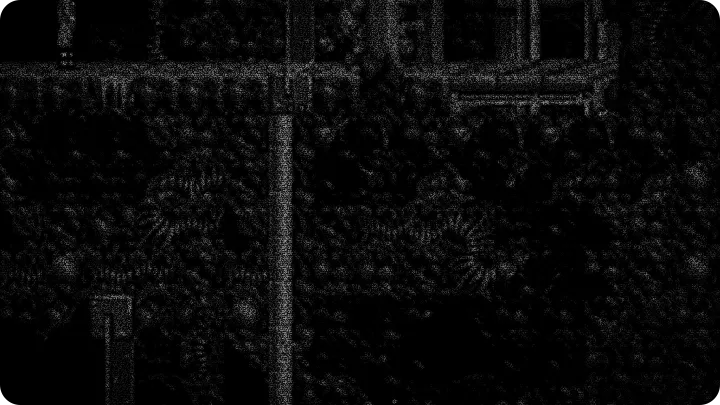
 Any final words for those who still boot the game to face you on Tuul?
Any final words for those who still boot the game to face you on Tuul?
 Keep your shells dry and your pride dry-er. The reception might have called me fair-minded, unkind, or cunning, but none of those words foretold your end. I will meet you in corridors that remember your missteps and in rooms that never forgive hesitation. Return as you please—I’ll be waiting, and when you think you’ve mapped every trap, there will be one more shadow speaking my name. Expect it.
Keep your shells dry and your pride dry-er. The reception might have called me fair-minded, unkind, or cunning, but none of those words foretold your end. I will meet you in corridors that remember your missteps and in rooms that never forgive hesitation. Return as you please—I’ll be waiting, and when you think you’ve mapped every trap, there will be one more shadow speaking my name. Expect it.
more info and data about Blackthorne provided by mobyGames.com

